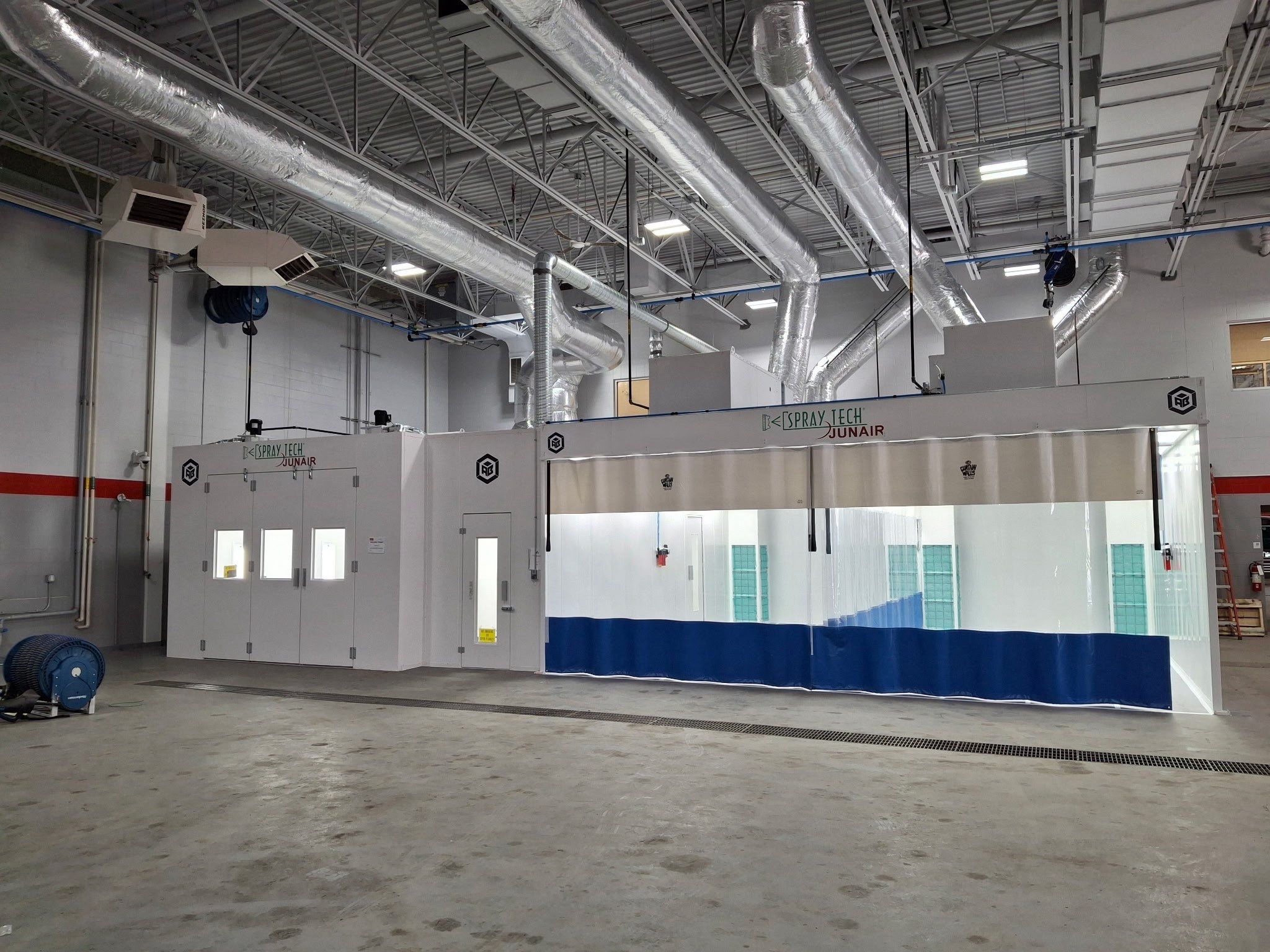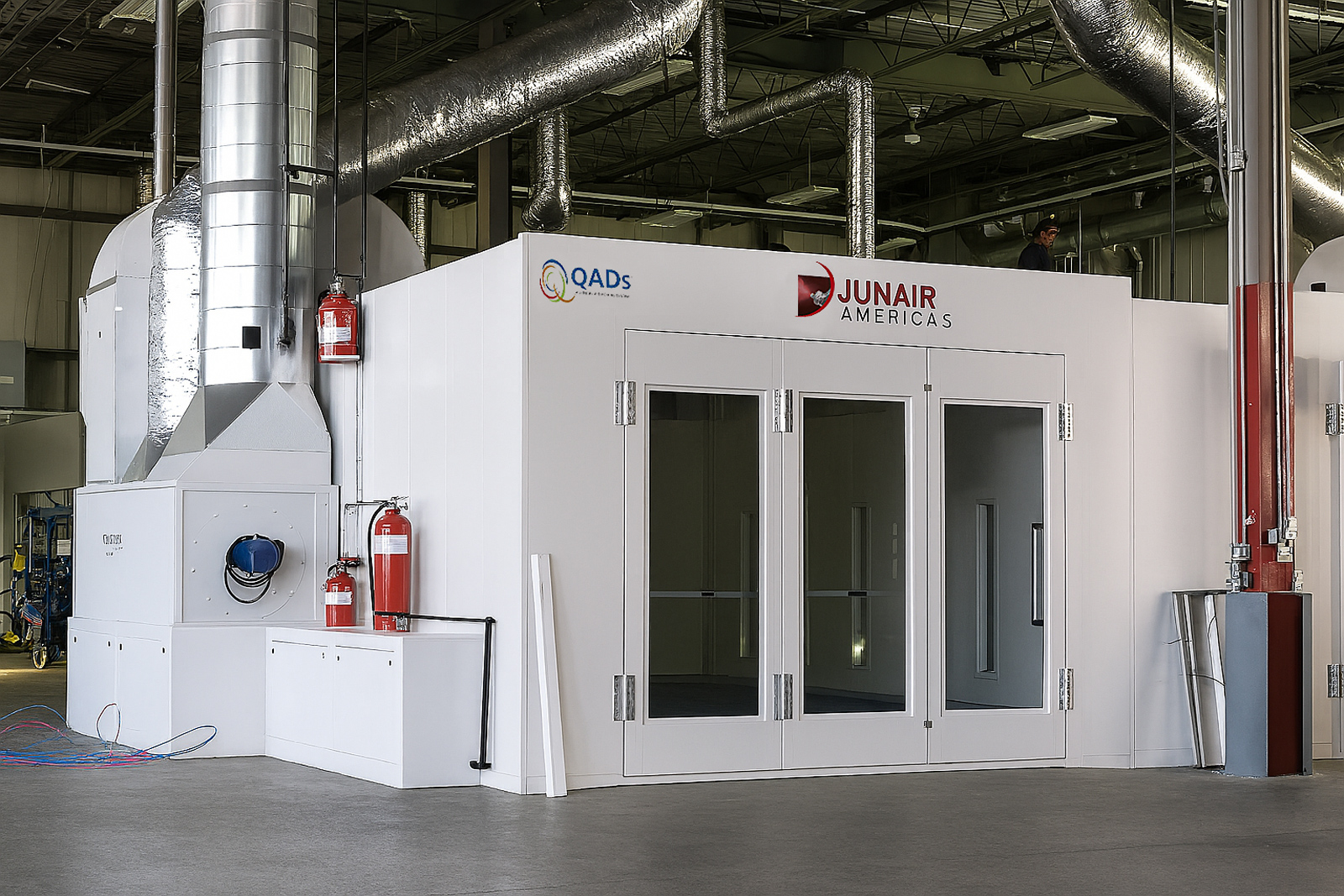June 24, 2025
Filters: The Unsung Heroes of Your Paint Booth
In every shop, there's the gear that gets all the attention. Fancy new spray guns, bigger and better compressors, that new impact gun everyone fights for to sign out. But tucked behind the scenes, doing some of the most crucial work without much credit, are your filters.
Like a lot of things people can take for granted, it's easy to forget about your filters until something goes wrong. But the truth is, your filters are doing more to protect your finishes, your equipment, a tech's well-being and your shop's efficiency than some people might give them credit for.
Let's talk about why they matter and why staying on top of them is one of the easiest ways to avoid expensive headaches down the line.

What Filters Are Actually Doing
A filter might not look like much. A box of mesh and fibres doesn't exactly scream high performance. But it's doing real work every minute your booth is running.
Whether it's catching overspray before it ends up on your fan motor or keeping dust out of your fresh, clear coat, the filter is your first and last line of defence against bad air.
The key is in the design. Things like pore size and filter density control what gets through and what doesn't. A good paint booth filter can trap fine particles down to just a few microns wide. That's small enough to stop contaminants you'd never notice until they wreck the job.
To give you an idea, human hair is about 70 microns wide. Some, especially industrial-grade, filters can catch particles that are five microns or smaller while still allowing clean air to flow.
When dealing with "parts per million" in your airflow, even a little bit of leftover dust or overspray in the air can be enough to cause problems.
Airflow Matters
Filters don't just protect your work surface. They also control how well your booth breathes.
If the filters are clogged, airflow slows down. When airflow slows down, pressure builds up, throwing off everything from how the paint lays down to how fast it cures. Fans and compressors will be more stressed too, which will cause extra wear and tear on those components. You'll notice it in longer booth times, less consistent finishes, and a general sense that something isn't running quite right.
And all of that can be traced back to something that could have been solved with a filter swap.
Know Your Filter Setup
Not all filters are doing the same job.
- Intake filters stop dirt and debris before they ever get inside the booth.
- Exhaust filters catch overspray before they hit your ductwork or make a mess outside.
- Pre-filters help extend the life of your primary filters by grabbing the bigger stuff early on.
Each one plays a role in keeping your booth balanced, and ignoring any one of them can throw the whole system off.
It's Easy to Overlook Until It Isn't
The hard part with filters is that they don't make a lot of noise when they start to fail. There's no flashing light. No warning buzzer. Just a slow decline in performance until something breaks, or a job doesn't cure properly, or the rework pile starts to stack up.
By then, that cheap and easy fix had turned into an expensive repair, or a job delay you probably didn't have time for.
Don't Let Filters Be the Weak Link
We get it. Shops are busy. Schedules are packed. It's not always easy to stay on top of the little things. So, if filters fall off the radar in your day-to-day, a proper repair and maintenance program, can be a big help.
It takes the guesswork out of keeping your booth in top shape. It keeps minor issues from turning into big ones. And it helps you stay focused on what you do best, knowing the vital stuff—like your airflow, pressure, and filter cycles—isn't slipping through the cracks.
Filters may not be flashy, but your operation runs smoother when they do their job right.
Find a Repair and Maintenance Package.






